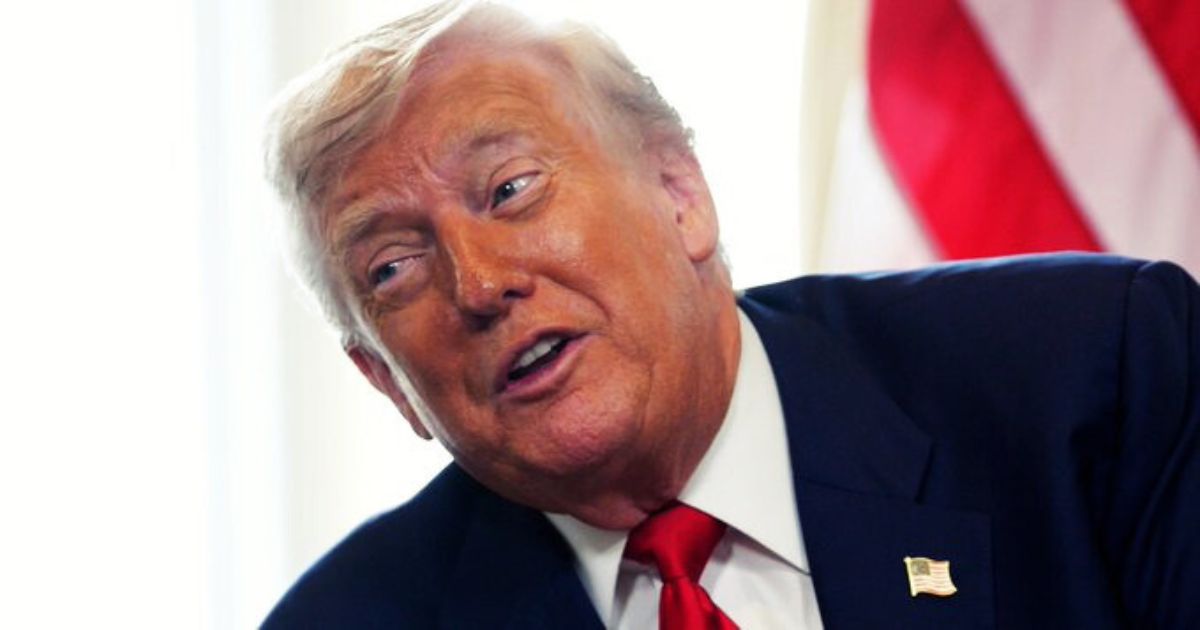American families could soon receive up to $2,400 in rebate checks under a new proposal backed by President Donald Trump. The plan, introduced by Republican Senator Josh Hawley of Missouri, would return money collected through Trump’s tariffs directly to U.S. households.
The initiative, named the American Worker Rebate Act, was introduced on Monday. It proposes rebate checks similar to the pandemic-era stimulus payments: $600 per adult and $600 per child, amounting to $2,400 for a family of four.
President Trump signaled his support for the idea last week during remarks to reporters. “We’re thinking about a little rebate,” he said. “But the big thing we want to do is pay down debt. But we’re thinking about a rebate.”
Sen. Josh Hawley rebate checks: “This is not going to the Biden voters. This is going to Trump blue collar voters.”🤔
They are not hiding it anymore pic.twitter.com/QaovdvjiKZ
— Ron Smith (@Ronxyz00) July 29, 2025
Following Trump’s comments, Senator Hawley quickly moved forward with the bill. “Like President Trump proposed, my legislation would allow hard-working Americans to benefit from the wealth that Trump’s tariffs are returning to this country,” Hawley said in a statement.
The proposal comes as federal revenue from tariffs has surged due to Trump’s aggressive trade policies. Billions of dollars have been collected from duties placed on imported goods from countries including China, Mexico, and the European Union. That money goes directly into the U.S. Treasury.
Supporters argue the rebate checks would provide relief to families facing rising costs from inflation and could help boost household budgets. Hawley, a longtime proponent of populist economic policies, emphasized that American families, not foreign exporters or corporations, should directly benefit from tariff revenue.
Critics, however, note that while the government collects the tariffs, U.S. importers, and ultimately consumers, often bear the cost through higher prices. They argue that while rebate checks are helpful, they may not fully offset the broader economic impact of tariffs.
Even so, the idea of turning tariff revenue into direct cash payments to Americans could prove politically effective. It frames Trump’s trade strategy not just as a tool for protecting U.S. industry but also as a way to deliver tangible benefits to working families.
The details of how the rebate would be distributed and who exactly would qualify have not yet been released. The legislation proposes a simple structure similar to previous stimulus programs, but the Treasury Department would ultimately handle implementation.
Trump has been creating these trade wars that have resulted in Americans paying more for goods. Tariffs are taxes on Americans — consumers pay, not foreign companies.
If they really helped, why are Trump and Josh Hawley now pushing rebate checks? Because voters feel the rising… pic.twitter.com/GwaqzeCEWZ
— Jessica Tarlov (@JessicaTarlov) July 29, 2025
Trump’s support adds momentum to the bill, which may now gain traction among Republicans in Congress. Whether the proposal receives bipartisan backing remains uncertain, but the political appeal of sending money to voters during a time of economic uncertainty may push it forward.
The rebate plan also allows the Trump administration to reframe its trade policy legacy. While tariffs were previously seen as a blunt instrument in foreign policy, the administration now presents them as a revenue source that can directly benefit the American people.
As national attention focuses on household budgets, jobs, and inflation, the proposal could become a centerpiece of the administration’s broader economic agenda in the months ahead.
Trump’s rebate proposal comes as he seals a major trade deal with the EU, imposing a 15% tariff in exchange for billions in European investment and energy purchases. With similar negotiations underway with China and India, rising tariff revenue forms the backbone of the plan to send rebate checks to U.S. families.









